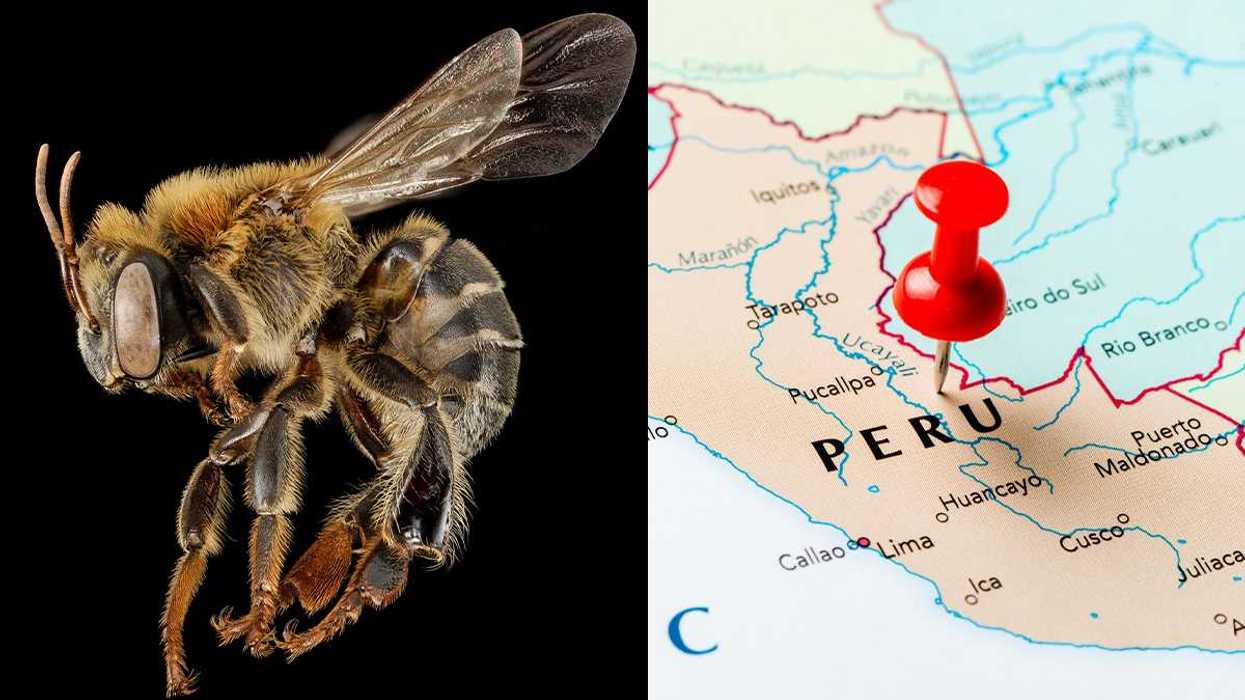The disappearance of 40-year-old mortgage broker William Earl Moldt remained a mystery for 22 years because the technology used to find him hadn't been developed yet.
Moldt was reported missing on November 8, 1997. He had left a nightclub around 11 p.m. where he had been drinking. He wasn't known as a heavy drinker and witnesses at the bar said he didn't seem intoxicated when he left.
After leaving the club, his car, a 1994 Saturn, wound up in a retention pond at the Grand Isles' Sausalito housing development in Wellington, Florida, which was under construction at the time. He'd never escape the pond alive.
The houses that are now around the pond wouldn't be built for another year.
The mystery of his disappearance wasn't solved until August 28, 2019 when his body was discovered in an effort led by Barry Fay.
RELATED: A blind inventor created a 'smart cane' with Google Maps to help visually-impaired people get around
It all began when Fay's neighbor's ex-husband was looking at his old neighborhood on Google Earth and saw what he thought was a car in the pond. He alerted his ex-wife who texted Fay with screenshots.
"She said, 'Tell me if you think that looks like a car,'" Fay said according to the Palm Beach Post.
His reply: "Yes, it does." Then he asked where the photos were taken.
"She said, 'Silly, that's behind your house.'"
When Fay got home he looked into the pond behind his house but didn't notice anything, just as he hadn't for the past 14 months he'd lived there.
Fay called a neighbor who owns a drone with a camera attached and the footage it returned showed, clear as day, there was a white car submerged in the pond. Fay called the Palm Beach Sheriff's Office immediately.
"They had my whole backyard roped off with crime-scene tape," he said.
When the car was removed by authorities it was heavily calcified and Moldt's skeletal remains were found inside.
Fay thought that the car they pulled out was just "just some junked-up old car," he said.
"Never did I believe there would be a 22-year-old dead body."

















 A collection of toilet paper rollsCanva
A collection of toilet paper rollsCanva A bidet next to a toiletCanva
A bidet next to a toiletCanva A cute pig looks at the cameraCanva
A cute pig looks at the cameraCanva A gif of Bill Murray at the dentist via
A gif of Bill Murray at the dentist via  A woman scrolls on her phoneCanva
A woman scrolls on her phoneCanva
 A confident woman gives a speech in front of a large crowdCanva
A confident woman gives a speech in front of a large crowdCanva
 The 'weird' car ceiling handle above the windowCanva
The 'weird' car ceiling handle above the windowCanva A gif of a dog and cat screaming in a car via
A gif of a dog and cat screaming in a car via 

 Creativity and innovation are both likely to become increasingly important for young people entering the workplace, especially as AI continues to grow.
Creativity and innovation are both likely to become increasingly important for young people entering the workplace, especially as AI continues to grow.

 Peru stingless bee.USGS Bee Inventory and Monitoring Lab/
Peru stingless bee.USGS Bee Inventory and Monitoring Lab/  Indigenous Peruvian people.Photo credit
Indigenous Peruvian people.Photo credit